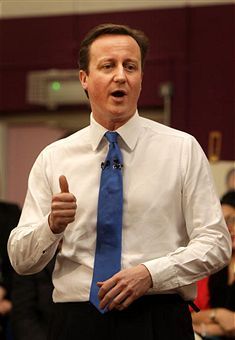 How deep is David Cameron’s commitment top empowering local government? His response to the New Local Government Network’s latest report will be an indication. The report argues that elected mayors should raise or cut business rates and council tax, and spend the proceeds on local services.
How deep is David Cameron’s commitment top empowering local government? His response to the New Local Government Network’s latest report will be an indication. The report argues that elected mayors should raise or cut business rates and council tax, and spend the proceeds on local services.
Mayoral coffers will hardly match the riches of the Spanish Main, the Times reports:
‘The authors have calculated that a 4p levy on business rates could raise £30 million for Birmingham, £10 million for Newcastle, £26 million for Leeds and £11 million for Milton Keynes.’
But even with a little more disposable cash, mayors could improve local infrastructure and oversee appointments to local primary care trusts, allowing the reduction of cumbersome central machinery. Mayors become accountable for public service provision, ratepayers enjoy more value for money and the state spends less. Cameron is determined to extend mayoral representation, so it makes sense for him to adopt the report’s recommendations and augment mayoral power – there is no point in electing a flock of municipal lame ducks.
However, there are problems. It is unclear how these changes would affect local councils’ remit, or how the two tax raising bodies would co-exist. Equally, devolving tax powers does not possess a happy precedent; it has taken years and millions for the Scottish system to operate effectively. When it comes to de-centralisation, clarity of aim must be exact in the legislation’s drafting; otherwise a self-defeating chaos between mayors and councils will ensue.






Comments